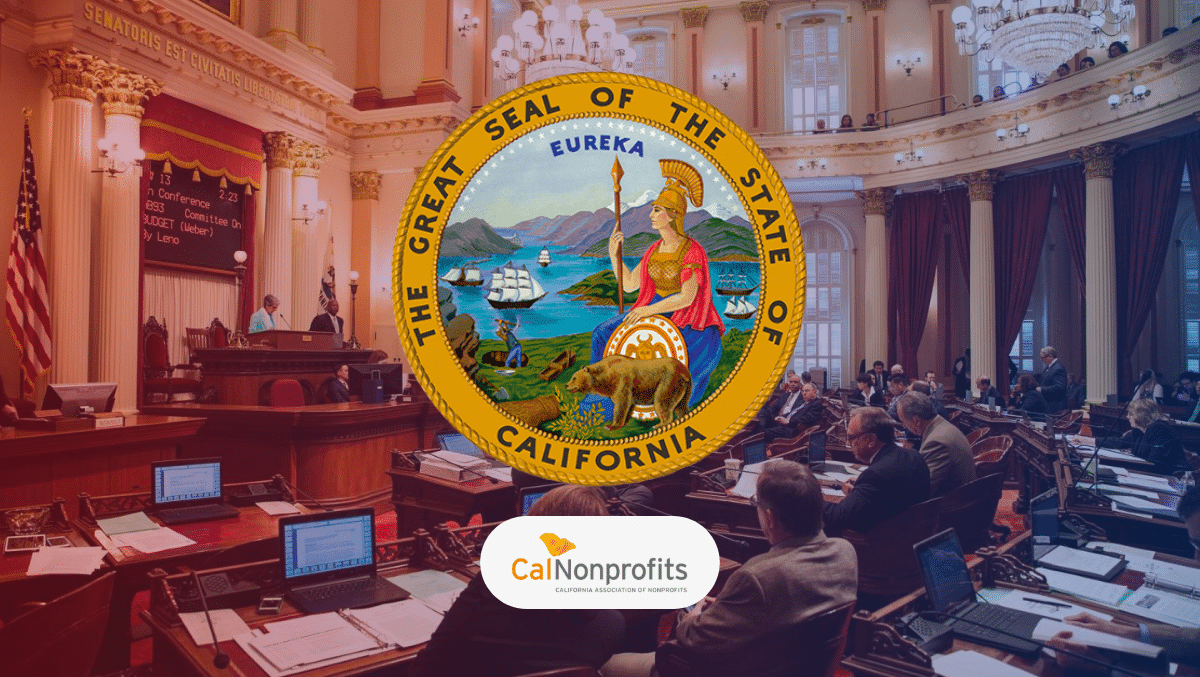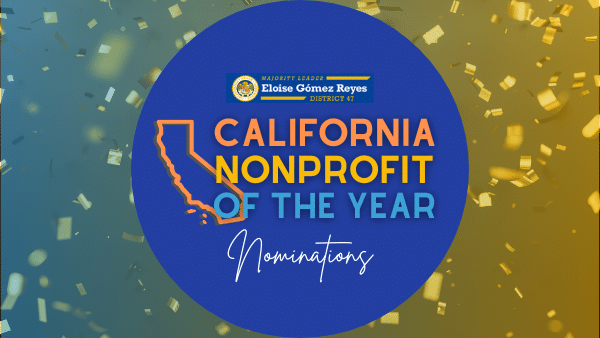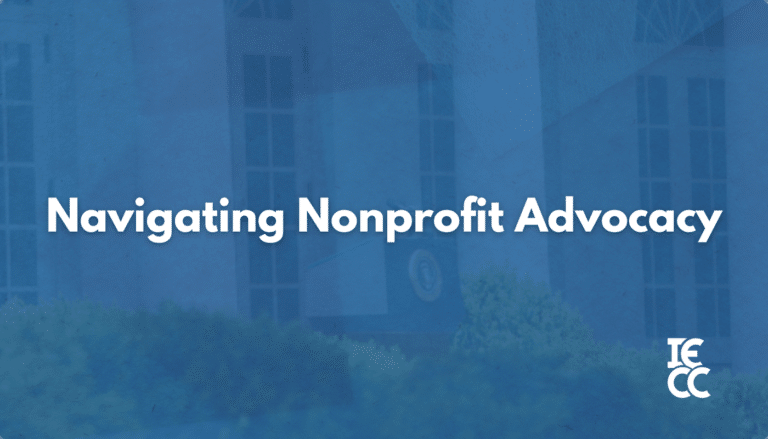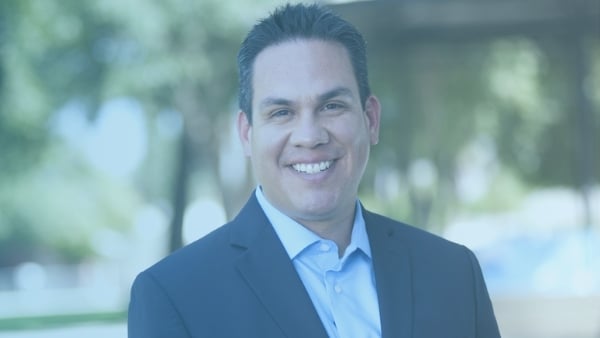Joint Hearing Assembly and Senate Select Committee on Nonprofit Sector

A Blueprint to Ensure Nonprofits are Supported and Thrive during Future Emergencies
On February 17, 2022, the Assembly and Senate Select Committees on the Nonprofit Sector held a joint hearing featuring panelists and public comment from nonprofit leaders across the state. The committees prepared a background paper and invited panelists to testify. The hearing was well attended by committee members and nonprofit advocates and can be watched in its entirety on the Assembly or Senate websites. CalNonprofits has compiled this brief to document the key themes and policy recommendations that emerged and that the Chairs urge legislators, state and local government, and advocates to pursue and implement.
Themes and Policy Recommendations
The nonprofit sector is contending with a severe workforce shortage, which threatens the delivery of critical community services statewide.
Policy Recommendations:
- Increase negotiated rate limits to support nonprofits’ needs to recruit and retain in the face of higher minimum wages, supplemental leave requirements, and overall workforce shortages.
- Provide greater flexibility in licensing requirements, including reciprocity with neighboring states, as appropriate, to help providers bolster our workforce to respond to pressing needs.
- Encourage thoughtful growth and implementation of new technologies to help expand services, flexibility, and access but with sufficient safeguards and quality control.
- Include annual increases in multi-year contracts and set pay standards by regional cost of living standards to retain nonprofit staff.
Ensure grants and contracts allow for and include investments in training, professional development, and wellness programs.The nonprofit sector remains undercapitalized statewide, suffers from inequitable distribution of assets and services, and faces a funding cliff as COVID-19 relief funding falls even as demand for services remains.
Policy Recommendations:
- Ensure that grants and contracts provide for adequate indirect costs so that the full costs of the contract or grant are covered. Improve the accessibility of state grants by smaller organizations and those operating in underserved communities (e.g., more technical assistance, fewer requirements for capital and credit, streamlined application processes, longer grant application periods, applications and processes made available in multiple languages, etc.)
- Resource nonprofits so they can pay living wages and recruit and retain needed staff. To provide quality services, nonprofits need to be able to compete for qualified talent.
- Deliberately and disproportionately fund nonprofits in areas that have been disproportionately burdened or underinvested in (e.g., rural areas, poorer communities, and communities of color).
- Support modest but critical investments in technology, training, and infrastructure capacity of nonprofits to connect with, onboard, and equip volunteers.
- Ensure that government-philanthropy partnerships support nonprofit leaders and organizations based in communities of color, rural communities, and poor communities.
As trusted partners and contractors in the government’s work to provide services to the most vulnerable Californians, nonprofits need more flexibility, fewer barriers, and more support.
Policy Recommendations:
- Modernize payment processes for nonprofit contractors to ensure the state is not requiring nonprofits to subsidize services or underpay employees. Pay sufficiently, fairly, and promptly (e.g., startup funding, higher indirect cost recovery rates, electronic (ACH) payments, faster reimbursement, eligibility of fiscally sponsored organizations, etc.)
- Allow contracted nonprofits to exercise sound judgment during emergencies to temporarily modify deliverables or move money to another cost required to continue meeting critical needs (e.g., pivoting from congregate meals to delivered, purchasing PPE and testing supplies to keep health clinics and childcare centers open).
- Make permanent certain flexibilities and service delivery options that were granted during the pandemic that improve and diversify service delivery, meet more people where they are, make use of technology, and streamline certifications.
To ensure nonprofits can access government programs, those programs must speak their language. Nonprofits must be recognized for their commonalities with for-profit entities and for their uniqueness.
Policy Recommendations:
- When supporting policies and relief to aid “small businesses,” always reframe the
objective to supporting “small businesses and nonprofits.” - Ensure explicit eligibility of nonprofits (of all sizes) in relief efforts for employers, service providers, and economic entities.
- Ensure explicit eligibility of nonprofits (of all sizes) in relief efforts for employers, service providers, and economic entities.
- Ensure that relief and regulatory efforts recognize and are compatible with the unique status of nonprofits. For example, income tax credits do not benefit nonprofits. We do not have “owners;” industry codes are not inclusive. And nonprofits complete different tax forms, have unique financial models, and do not typically access credit/loans.
- Design programs and policies to minimize the administrative burden and cost on both the state and nonprofits.
- Utilize payroll tax credits as does the federal Employee Retention Tax Credit program to support nonprofits easily and equitably.
Panelists’ written comments:
- Julie Baker, Executive Director, Californians for the Arts and California Arts Advocates
- Jennifer Hark Dietz, Chief Executive Officer, PATH
- Dr. Le Ondra Clark Harvey, Chief Executive Officer, California Council of Community Behavioral Health Agencies (CBHA)
- Janet Marinaccio, President/CEO, MEND-Meet Each Need with Dignity
- Jan Masaoka, CEO, CalNonprofits
- Karen Delaney, Executive Director, Volunteer Center of Santa Cruz County
- Maricela Morales, Executive Director, Central Coast Alliance United for a Sustainable Economy (CAUSE)
- Carmen Padilla, Chief of Staff, El Concilio of Stockton







